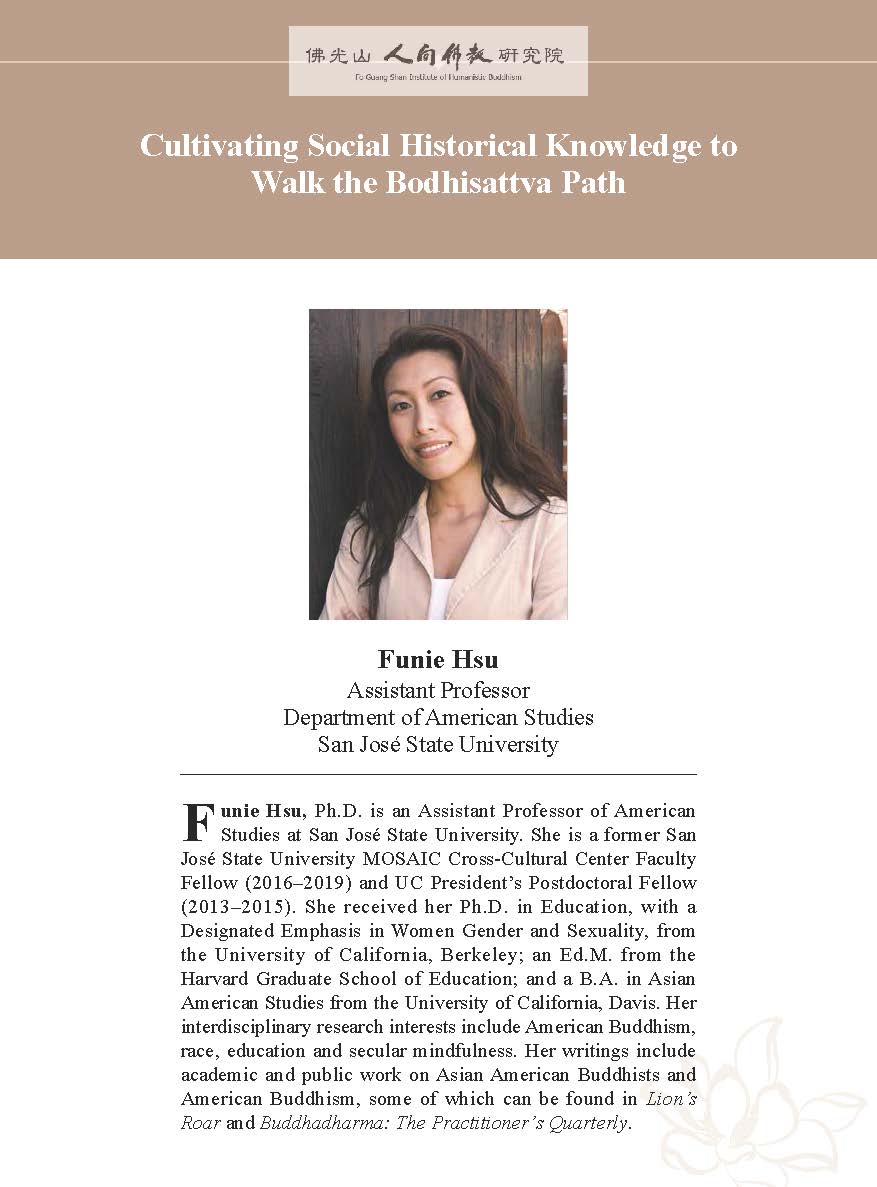
|
Cultivating Social Historical Knowledge to Walk the Bodhisattva Path
作者
Funie Hsu
單位職稱
Assistant Professor, Department of American Studies, San José State University
編者
妙凡、程恭讓總編輯
摘要
In many regards, the future of Humanistic Buddhism can be considered in relation to its past. Developed as a response to social and political reforms in China during the transition from Qing dynastic rule to Republican governance, Humanistic Buddhism, as conceptualized by Master Taixu, proposed a reform of Chinese Buddhism that redirected its focus from ritual practices for the dead to emphasizing the human concerns of practitioners in this life. Thus, it prioritized an objective of engagement with human needs in a worldly context. While Humanistic Buddhism as expanded in Taiwan under the guidance of Venerable Master Hsing Yun maintains this focus on addressing human concerns, a reexamination of this historic foundation might prove fruitful in yielding new directions for the future growth of Humanistic Buddhism, especially in regards to its propagation throughout the world.
引文
Funie Hsu, " Cultivating Social Historical Knowledge to Walk the Bodhisattva Path, " 2019人間佛教高峰論壇──人間佛教與未來學 (2020): 254-270
全文下載











